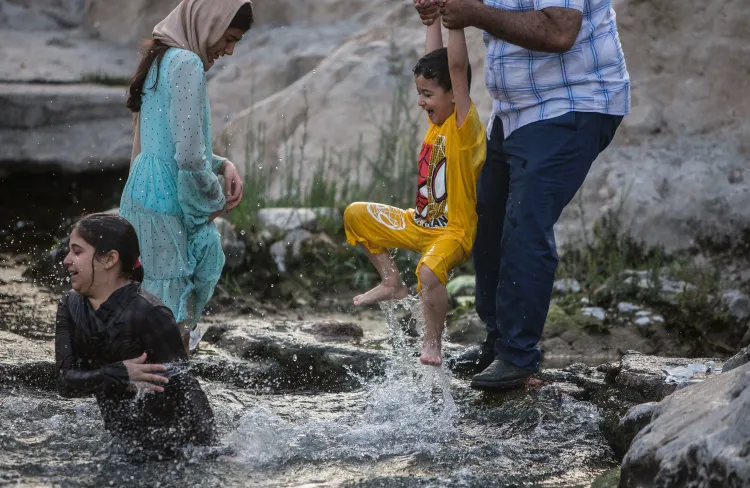Are Extreme Heat Waves Causing Climate Emergencies Worldwide?

Synopsis
Key Takeaways
- Extreme heat waves are impacting regions worldwide, especially Europe and the Middle East.
- Iran and Greece are experiencing record temperatures and severe wildfires.
- Urgent action is needed to enhance climate resilience and adaptation strategies.
- Authorities are urging reduced water consumption amid extreme conditions.
- Climate change is leading to more frequent and intense weather events globally.
Beijing, July 21 (NationPress) A global alert has been issued as Europe and the Middle East endure an intense heat wave, leading to significant climate emergencies across numerous nations.
As reported by the national meteorological service, Iran is experiencing its hottest week this year, with temperatures soaring above 50 degrees Celsius; Tehran recorded 40 degrees on Sunday.
In response to the extreme temperatures, Tehran's water authority has called on residents to reduce their water usage by at least 20 percent, highlighting that dam reservoirs supplying the capital have plummeted to their lowest levels in a century.
Meanwhile, the Greek capital, Athens, about 3,500 km west of Tehran, is facing its first extended heatwave of the summer.
Hot air masses from North Africa have created a heat dome over Greece and the Balkans, leading to temperatures rising up to 10 degrees above the seasonal average, according to the National Observatory. Average highs are expected to reach 38 degrees this week, with some areas experiencing peaks of 44 degrees. The National Herald, a Greek daily, has characterized the weather as “hotter than hell.”
The combination of extreme heat and wind has put Greece at risk of severe wildfires.
On Thursday, firefighters battled a blaze on Crete that ravaged forests and olive groves, leading to the evacuation of over 1,000 individuals. A new fire near Athens also threatened residential zones.
Turkey has reported 761 wildfires in just ten days since June 26, with the blazes in the Izmir Province claiming the lives of an elderly man and a forestry worker.
Across Europe, at least eight deaths related to heat have been recorded in nations such as Spain and Italy as the continent suffers under the heatwave, as stated by Xinhua news agency.
Clare Nullis, a spokesperson for the World Meteorological Organization, emphasized, “We are currently under the influence of a strong high-pressure system; this is trapping hot air from northern Africa over the region. And as we can see, it's having a pretty big impact on the way we feel.”
She remarked that people will need to adapt to more frequent and severe heat waves due to climate change.
The EU-funded Copernicus Climate Change Service recently stated that “damage to the built environment from extreme weather events is expected to increase tenfold by the end of the century due to climate change alone.”
These widespread climate impacts underscore the critical need for enhanced resilience, advocating for physical and technological strategies such as water recycling, rain and greywater separation, climate-resilient building design, risk mapping, and early warning systems.
“Adaptation is required across all sectors and governance levels, and actions must address both current climate impacts and protect against future risks,” it concluded.









